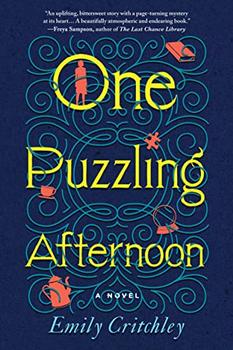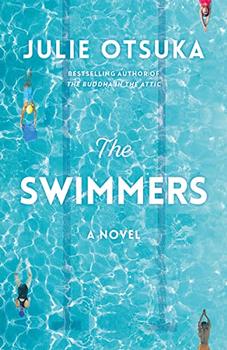Summary | Excerpt | Reading Guide | Reviews | Beyond the book | Read-Alikes | Genres & Themes | Author Bio

One House, Three Generations, and a Journey into Alzheimer's
by Andrea GilliesThere are memoirs that inspire and there are memoirs that are inspired. Gillies's exceptional, award-winning account of caring for her ailing mother-in-law fits squarely into both categories. It is said, "Greater love has no one than this, that someone lay down his life for his friends." This is usually quoted in reference to a soldier putting himself or herself at risk so that another may live. What of a woman who sets aside her own life (and career) so that her mother-in-law with Alzheimer's disease might have the kind of loving care only a family member can provide?
That is precisely what Gillies does. What's more, the elder woman's physically impaired husband comes along as part of the bargain. As if the care of her in-laws and her own three children were not enough, professional journalist Gillies - whose sanity one might legitimately question at this point – decides to run a B&B out of the house. Naturally, the ancient manse on a northern Scottish peninsula is cold, drafty and in need of extensive refurbishing. Although her husband Chris helps, his own full time job keeps him away from home, sometimes for days at a time.
It might seem that by adding around-the-clock care for a second stage Alzheimer's patient to an already busy life Gillies is bucking for sainthood, but I think she simply didn't give it a second thought. If she had, she likely would have run for the nearest exit and never looked back; it's painfully clear early on that caring for Nancy would test the limits of Gillies's capabilities.
When Nancy greets B&B guests dressed only in her underpants, or threatens her own grandson with a knife, Gillies can only draw on her deep well of literary and medical resources. This, in the end, is what sets Keeper apart from other Alzheimer's memoirs: every step of the way through her care-giving journey Gillies refers to the wisdom of others to guide her out of the darkest moments of fraying nerves and splintering despair. Whether she consults the Internet for information – good, bad and occasionally delusional - or her vast library of books both by and about those who had previously marched along the path she and Nancy now traveled, Gillies taps abundant inspiration.
Punctuating her candid personal experiences and lots of medical information on Alzheimer's are glorious morsels of truth gleaned from the wisdom of the ages, offering perspective and keeping her sane. At one point she notes, "Ralph Waldo Emerson wrote, 'Finish each day and be done with it. You have done what you could. Some blunders and absurdities no doubt crept in; forget them as soon as you can. Tomorrow is a new day; begin it well and serenely.' This is good advice, though he also wrote, 'Sometimes a scream is better than a thesis.'"
This is not a feel-good book. At times, everyone's suffering is so raw it's painful. But this is also a beautiful and perceptive book. Gillies may not be a saint but this experience makes her something of a hero in my estimation.
![]() This review was originally published in The BookBrowse Review in September 2010, and has been updated for the
November 2011 edition.
Click here to go to this issue.
This review was originally published in The BookBrowse Review in September 2010, and has been updated for the
November 2011 edition.
Click here to go to this issue.

If you liked Keeper, try these:

by Emily Critchley
Published 2023
A mystery she can't remember. A friend she can't forget.

by Julie Otsuka
Published 2023
From the bestselling, award-winning author of The Buddha in the Attic and When the Emperor Was Divine comes a novel about what happens to a group of obsessed recreational swimmers when a crack appears at the bottom of their local pool - a tour de force of economy, precision, and emotional power.
Show me the books he loves and I shall know the man...
Click Here to find out who said this, as well as discovering other famous literary quotes!
Your guide toexceptional books
BookBrowse seeks out and recommends the best in contemporary fiction and nonfiction—books that not only engage and entertain but also deepen our understanding of ourselves and the world around us.